SUMMARY
This is AI generated summarization, which may have errors. For context, always refer to the full article.
![[OPINION] How and when can this ‘Filipino Dream’ of labor migration come to its end?](https://www.rappler.com/tachyon/2022/02/NS-ofw-1.jpg)
Most Filipinos would admit to knowing someone who went abroad for work or residence. Rightly so, the University of the Philippines Population Institute characterizes Filipinos as a people who tend to migrate, whether international or domestic, mainly for economic reasons. This is supported by data from the 2018 National Migration Survey which found that 40% of Filipinos are lifetime migrants, that migration is mostly for employment reasons, and that the Philippines is the third leading recipient of remittances in the world (around 10% of GDP by World Bank estimates). In addition, the International Labor Organization noted that 10 million Filipinos live abroad (around 1 out of 10) and that more than 1 million emigrate for employment each year.
Given the importance of labor migration to the Philippine economy, the president recently signed into law RA 11641, which established the Department of Migrant Workers, which aims to merge various agencies concerned with OFW welfare and reintegration, most notably POEA and OWWA. However, the bill also had its criticisms as some lawmakers were doubtful of allotting their budget to a new bureaucracy. Some also raised that it might further encourage labor migration as the state-led, stopgap solution for economic development that it has been since the Marcos era. However, through the years, salient cases of discrimination and abuse have led to an equally proactive state-led effort to protect the rights and welfare of Filipinos overseas as the third pillar of Philippine foreign policy.
For the lawmakers and perhaps the public, the ultimate aspiration is for labor migration to be undertaken by choice, not out of necessity; that someday Filipinos would no longer have to go abroad for better opportunities for themselves and the families they leave behind. To this we should ask: how and when can this “Filipino Dream” of labor migration come to its gradual end?
Before we seek some ways forward, I would first propose a trilemma among the policy goals of labor migration, OFW welfare, and economic development; accordingly, only two pursuits can be maximized at the expense of the remaining one.
Firstly, when the policy goal is to facilitate labor migration to gain remittances for economic development, more Filipinos would emigrate to other countries, and the resulting out-migration would complicate government efforts to protect OFW rights and welfare. Aside from the perils of exploitation and abuse especially among un-/low-skilled workers, illegal migration will be a persistent problem as unrecorded immigration will remove citizens from state protection.
Secondly, when the policy goal is to facilitate labor migration while protecting the rights and welfare of OFWs by all means, there would be a resulting decline in remittances for economic development because this would entail deployment bans and repatriations against non-cooperative host countries. Surely repatriations are necessary in times of crisis such as a pandemic, but arriving at international agreements on migrant workers’ welfare to prevent bans or perhaps requesting legal pardons for prosecuted OFWs is complicated by the diplomatic necessity to prevent interference against another independent state.
Thirdly, when the policy goal is to protect OFW rights and welfare while promoting economic development, there would certainly be a decline in labor migration as the state encourages Filipinos to be economically productive while being stable and safe in their home country. This perspective is surely the ultimate aspiration as policy debates, such as with the earlier stated law, currently shift towards the ideal objective of return migration and reintegration – that no more Filipinos will have to go abroad by necessity.
Far from creating a false trilemma, what I proposed above seeks to highlight possible policy alternatives and argues that policymakers ought to strike a reasonable balance among the three concerns. Having emphasized the triad of factors to consider in policy debates, let me then propose some insights on ways forward towards a new “Filipino Dream.”
While indicative of increasing globalization through human mobility, the long-term state policy and social trend of labor migration reflects fundamental issues of economic underdevelopment, demographic instability, cultural desirability, and global inequality.
The first one is economic. A paradox here is that while remittances can raise national income, “labor flight” and brain drain can impede economic development. Hence, the primary solution is to consistently pursue balanced regional development to even out employment and income opportunities across the country. This pursuit would entail reforming and developing the agricultural base while strengthening the industrial and service sectors; frankly, to feed the country first, boost productivity, then export what we can for domestic income. While it may be imperative to further liberalize the economy to attract investments and support businesses, the fundamental priority should be human development through education, food security, fair wages, and social welfare for citizens to better contribute to domestic progress.
The second is political. The primary aim is to create a domestic environment favorable for business productivity and human development to sustain economic development. The government should pursue programs for demographic stability, such as reproductive health and family planning, to mitigate the Malthusian problem of overpopulation which depresses wages, strains the welfare state, and causes poverty. Also, policies such as the Balik Scientist, Balik Probinsya, and other programs for return migration and reintegration ought to provide opportunities for livelihood and social welfare. While it is imperative to continue diplomatic efforts to uphold the welfare of OFWs, the government should refrain from encouraging labor migration as national policy but instead focus on domestic economic development and political stability as pull and stay factors.
The third is socio-cultural. The country can continue discourses on the “Bagong Bayani” but with discretion to not romanticize the plight of OFWs. Genuine recognition of OFW heroism entails concrete action to protect their rights and welfare. Also, the country ought to refrain from derogatory concepts which commodify human beings, such as the term labor export. While we could gradually initiate cultural change to mitigate the desirability of labor migration and encourage economic productivity rooted in national and family values, the ultimate objective would be providing opportunities to prosper and thrive in the home country.
Overall, we ought to learn that migration is a choice while poverty is not. The “Filipino Dream” of seeking better opportunities abroad will persist for so long as Filipinos are compelled by real circumstances of rural and urban poverty, informal and underground work, overpopulation, environmental vulnerability, human insecurity, income inequality, and government corruption, among a litany of others. The deliberate balancing among the trilemma of labor migration, OFW welfare, and economic development ought to be supported by economic, political, and socio-cultural reforms which will address the underlying structural issues which compel emigration. Indeed, it is a triad of national issues to consider among policy debates in the upcoming elections and beyond.
The ultimate aspiration is to initiate the new “Filipino Dream” of equal opportunity in the country for inclusive and sustainable development, which will hopefully beckon the diaspora in due time and give every Filipino reasons to stay at home. – Rappler.com
Vince Joson T. Maggay is a 4th year BA Political Science student from the University of the Philippines Diliman.
Add a comment
How does this make you feel?
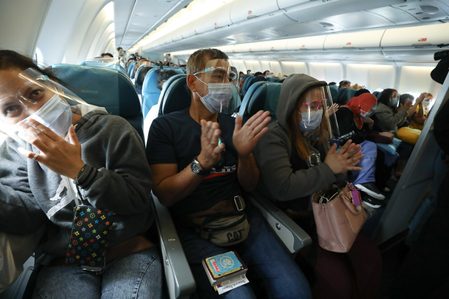
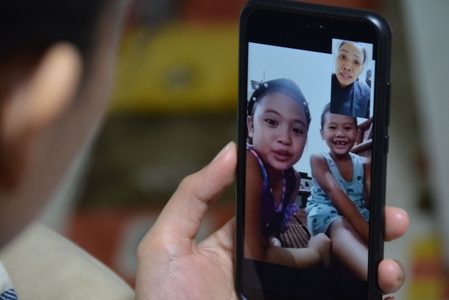
![[OPINION] We are forgotten: On OFWs and mental health](https://www.rappler.com/tachyon/2021/09/ispeak-ofw-depression-1280.jpg?fit=449%2C449)
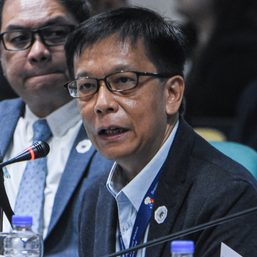
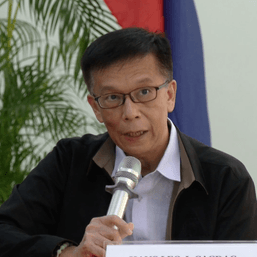


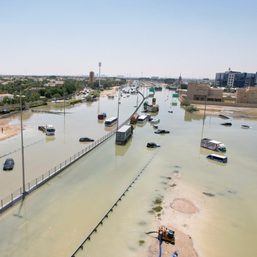
![[In This Economy] Is the Philippines quietly getting richer?](https://www.rappler.com/tachyon/2024/04/20240426-Philippines-quietly-getting-richer.jpg?resize=257%2C257&crop=194px%2C0px%2C720px%2C720px)
![[In This Economy] A counter-rejoinder in the economic charter change debate](https://www.rappler.com/tachyon/2024/04/TL-counter-rejoinder-apr-20-2024.jpg?resize=257%2C257&crop=267px%2C0px%2C720px%2C720px)
![[Vantage Point] Joey Salceda says 8% GDP growth attainable](https://www.rappler.com/tachyon/2024/04/tl-salceda-gdp-growth-04192024.jpg?resize=257%2C257&crop_strategy=attention)
![[ANALYSIS] A new advocacy in race to financial literacy](https://www.rappler.com/tachyon/2024/04/advocacy-race-financial-literacy-April-19-2024.jpg?resize=257%2C257&crop_strategy=attention)

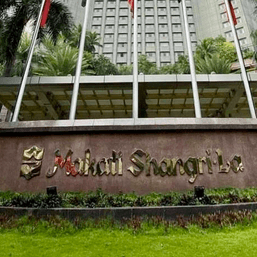
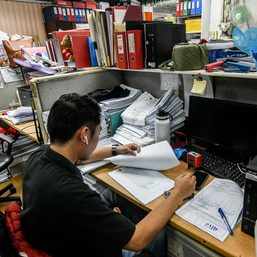
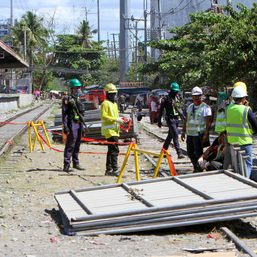
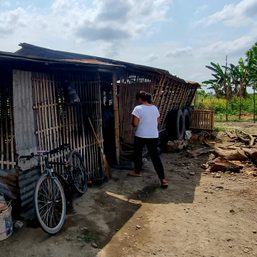
There are no comments yet. Add your comment to start the conversation.